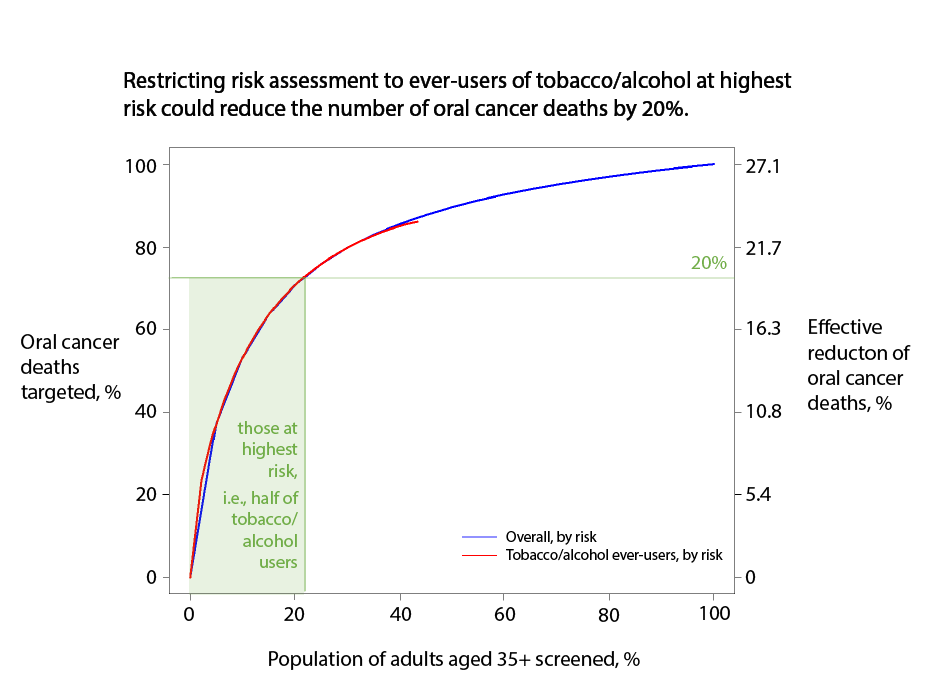Risk-Based Oral Cancer Screening Can Cut Costs While Maintaining High Sensitivity
Risk-based oral cancer screening may improve the efficiency of screening programs and still maintain high sensitivity, according to a study published February 2021, in the Journal of Clinical Oncology.
In a previous study of the Kerala Oral Cancer Screening Trial in India, investigators found that visual inspection screening by trained health workers resulted in a 34 percent reduction in oral cancer mortality among ever-tobacco/alcohol users, highlighting the potential of risk-based screening strategies.
Using a validated oral cancer risk prediction model in a reanalysis of the Kerala trial, Li C. Cheung, Ph.D., staff scientist in the Biostatistics Branch, and colleagues, demonstrated that the efficacy of screening increased with increasing risk of oral cancer. They also found that among ever-tobacco and/or ever-alcohol users, individuals at highest risk for oral cancer experienced the greatest reduction in oral cancer mortality from screening.
This study is the first to provide proof-of-principle for the utility of a resource-efficient, risk-based oral cancer screening program to improve public health in low resource settings that bear much of the global oral cancer burden. For example, India’s current guidelines of screening all adults aged 30 years or older targets approximately 584.2 million individuals. However, using this study’s risk-based selection strategies would identify 72.7 percent of those at risk of death from oral cancer from screening just half of ever-tobacco users at the highest predicted risk (117.3 million individuals; i.e., 20.1 percent of the eligible population).
More research is needed on optimal screening intervals for individuals at different risks to further improve resource-efficient, risk-based oral cancer screening.
Reference:
Cheung LC, et al. Risk-Based Selection of Individuals for Oral Cancer Screening. J Clin Oncol. Epub 2021 Jan 15.
